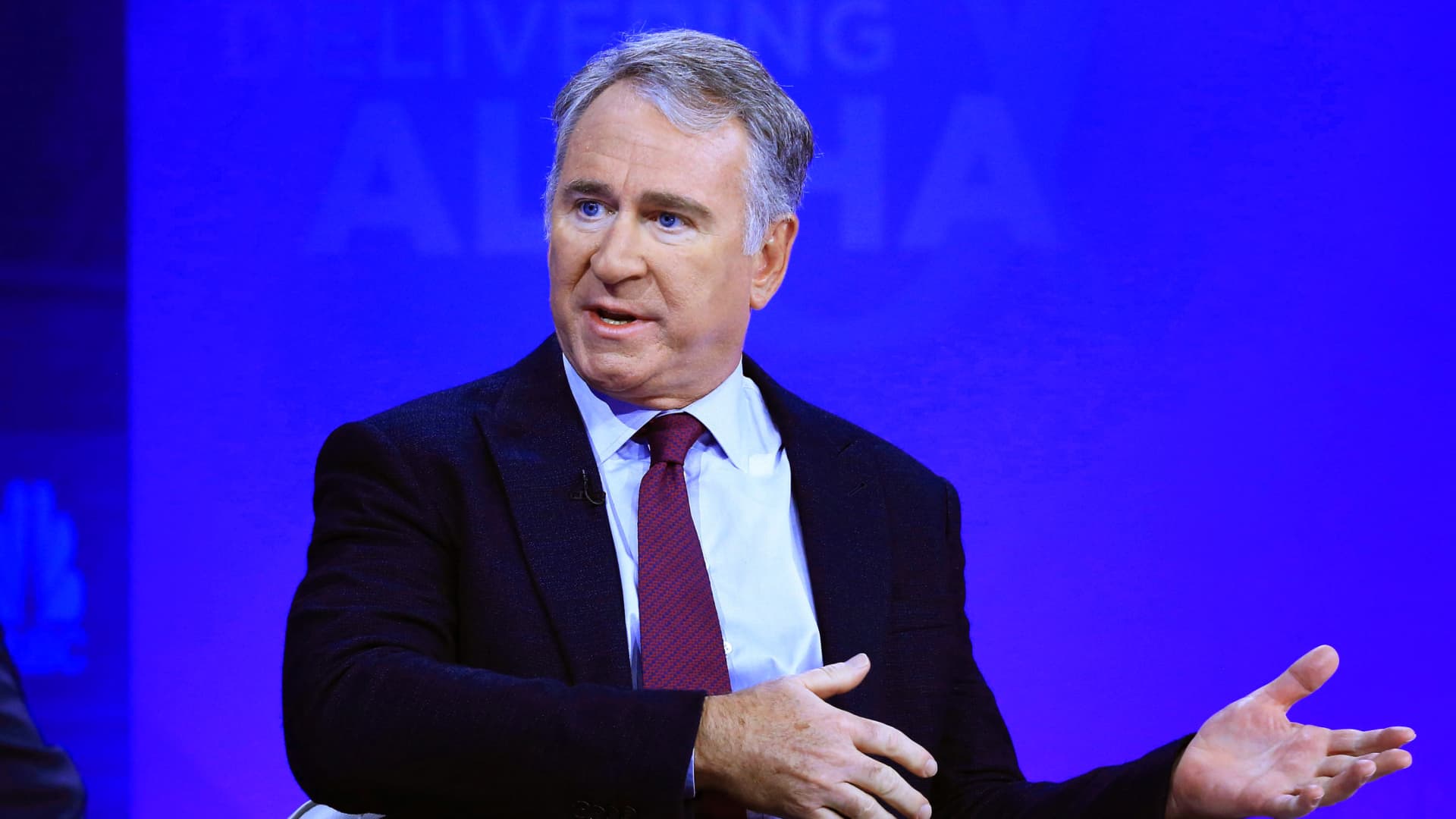Billionaire investor Ken Griffin’s various hedge fund strategies all posted double-digit returns for 2023, but they failed to beat the broader market.
Citadel’s multistrategy Wellington fund gained 15.3% last year, according to a person familiar with the returns. The flagship fund had enjoyed a stellar 2022 with a 38% gain, marking its best year on record.
The Miami-based firm’s tactical trading fund gained 14.8% in 2023, while its equities fund, which uses a long/short strategy, returned 11.6%, the person said. Citadel’s global fixed income was a relative underperformer at the firm, returning 10.9% last year, according to the person.
The stock market pulled off a surprisingly strong 2023 with the S&P 500 climbing 24% on the year. Risk assets enjoyed a big relief rally as the economy remained resilient and inflation cooled, while the Federal Reserve signaled an end to rate hikes and forecasted rate cuts later this year. The market also endured a regional banking crisis as well as wars in Ukraine and the Middle East.
However, the volatility and the tricky macroenvironment made it difficult for certain hedge fund strategies to beat the market. Hedge funds on average gained just about 4.4% in 2023 through November, according to research firm HFR.
Citadel is returning all of 2023’s $7 billion in profits to investors and the firm has handed back about $25 billion to investors since 2018, the person said. The financial giant has about $58 billion in assets under management.
Citadel declined to comment.
Don’t miss these stories from CNBC PRO:
- These stocks will be the biggest S&P 500 winners of 2024, according to analysts
- Here’s where to invest $50,000 in the new year, according to the pros
- Could a bitcoin ETF approval be a sell-the-news event? Here’s what to expect if it happens
- These stocks will be the biggest Dow winners of 2024, according to analysts
- Oprah’s flip on weight loss drugs is a sign of what’s to come for the ‘Ozempic trade’ in 2024
